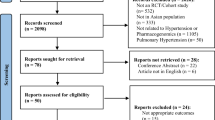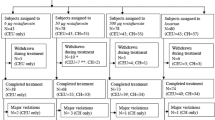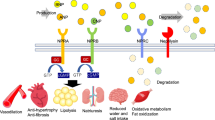Abstract
Information from clinical and pharmacokinetic studies of angiotensin-converting enzyme inhibitors (ACEIs) has come from subjects who are mostly male and Caucasian, but the use of ACEIs extends to populations worldwide. Significant differences between Chinese in general and male Caucasians have been demonstrated in the pharmacokinetics/dynamics of other drug classes that could have implications for the use of ACEIs in the Chinese population. These include: significant Chinese/Caucasian genetic variation in the renin-angiotensin system based on an insertion/deletion (O/D) polymorphism of the ACE gene; the genetic determination of plasma ACE activity in the Chinese population; and genetic factors involving the disease substrate which may also influence the response to treatment. Oral and IV pharmacokinetic data from various studies of Chinese and Caucasian subjects are available for cilazapril, fosinopril, and perindopril, and pharmacodynamic data are available for eight different ACEIs. Based on these data, there are few differences among the pharmacokinetics of ACEIs between Chinese and Caucasians. Most ACEIs showed good blood pressure lowering efficacy in Chinese (benazepril, enalapril, fosinopril and spirapril), with perhaps less blood pressure lowering with cilazapril or a relatively shorter-term effect with cilazapril or perindopril compared to Caucasions. Chinese experience more cough from ACEIs (captopril and enalapril) than Caucasians. Data suggest that fosinopril may not induce cough in as many subjects as other ACEIs, and this seems to be true of Chinese as well. The mechanism, currently unknown, could involve fosinopril’s dual elimination pathway (hepatic and renal). Pharmacokinetic data also support the use of fosinopril in congestive heart failure where elimination pathways may be impaired. In conclusion, ethnic differences between Chinese and Caucasians with respect to ACE and AGT gene polymorphism, which might be expected to differentially affect the action of ACEIs in these two ethnic groups, do not, in fact, have such an effect. Rather, differences among the ACEIs appear to be more important.
This is a preview of subscription content, access via your institution
Access options
Subscribe to this journal
Receive 12 digital issues and online access to articles
$119.00 per year
only $9.92 per issue
Buy this article
- Purchase on Springer Link
- Instant access to full article PDF
Prices may be subject to local taxes which are calculated during checkout
Similar content being viewed by others
Author information
Authors and Affiliations
Rights and permissions
About this article
Cite this article
Ding, P., Hu, OP., Pool, P. et al. Does Chinese ethnicity affect the pharmacokinetics and pharmacodynamics of angiotensin-converting enzyme inhibitors?. J Hum Hypertens 14, 163–170 (2000). https://doi.org/10.1038/sj.jhh.1000856
Received:
Revised:
Accepted:
Published:
Issue Date:
DOI: https://doi.org/10.1038/sj.jhh.1000856



